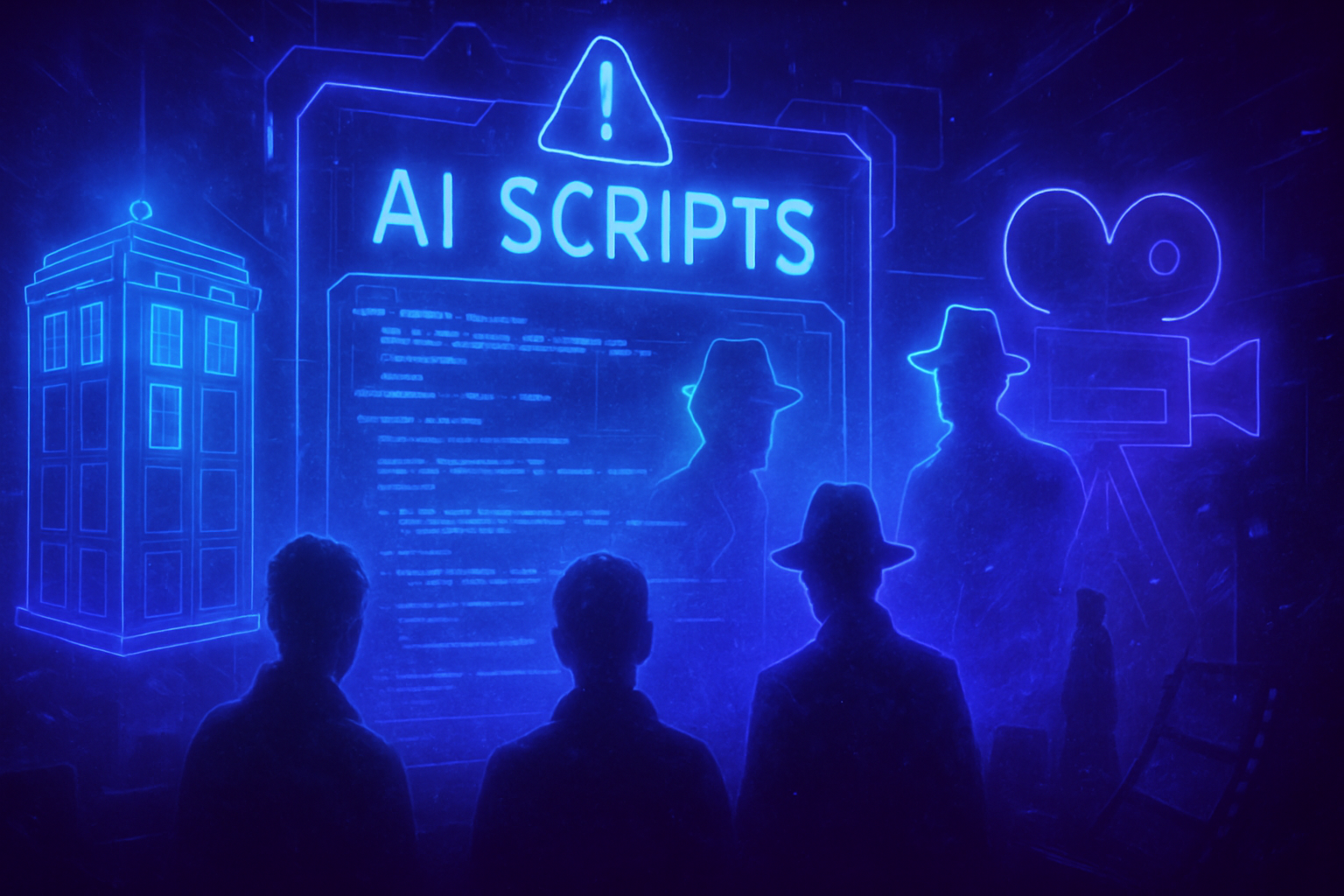The British film industry faces an unprecedented threat, a consequence of the abusive exploitation of scripts by artificial intelligence companies. A report from the British Film Institute (BFI) highlights fundamental issues of technological innovation and sustainability of the industry. The legalization of manipulating works without consent raises crucial ethical and professional questions for the future of the creative field. The threats looming over entry-level jobs exacerbate the need for a regulated legal framework where creators can be protected.
Copyright Manipulation
Artificial intelligence companies are currently exploiting 130,000 film and series scripts to train their models. This method raises serious concerns about the legality and ethics of using such materials, essentially without compensation or authorization from rights holders. The British Film Institute (BFI) warns against this potential violation of intellectual property rights, describing this phenomenon as a direct threat to the future of the British film industry.
Employment Consequences
The BFI report emphasizes that automation driven by AI could eliminate many entry-level jobs. These positions allow the new generation of workers to access the film and television industry. The disappearance of these jobs threatens to reduce opportunities for young talents eager to prove themselves.
Growing Concerns
Fears of obsolescence among industry professionals are rapidly multiplying. The automation of tasks such as writing, translation, and certain visual effects directly threatens the careers of many workers, particularly those at the beginning of their careers. Education and skills upgrading are thus seen as essential to support the workforce in the face of this technological transition.
Call for Strict Regulation
The creative industries in the UK are demanding the establishment of an “opt-in” regime, requiring AI companies to seek permissions and establish licensing agreements before using protected content. This regulatory framework could strengthen copyright protection while ensuring that creators receive fair compensation for their works.
The Benefits of AI
Despite the risks, AI also promises significant opportunities. It can speed up production flows, democratize content creation, and give a voice to new creators. According to Rishi Coupland, Director of Research and Innovation at the BFI, the benefits of AI must be carefully managed to fully leverage its potential while preventing the erosion of traditional business models.
The Position of Industry Stakeholders
Leading figures in the sector, such as the Director General of the BBC and the CEO of Sky, oppose any proposals that would allow technology companies to exploit protected works without permission. This position underscores the need to ensure appropriate protective measures to safeguard the integrity of the British creative industry.
Education and Training
The BFI report also highlights a “critical shortfall” in training dedicated to AI. Currently, education in this field remains largely informal, excluding many workers, particularly freelancers, from resources to develop AI-compatible skills. Increased efforts in education and training are imperative to prepare industry stakeholders for a future where AI will play a central role.
Recommendations and Future
As part of its recommendations, the report proposes the establishment of a marketplace for intellectual property licensing and training, as well as the development of culturally inclusive AI tools. These initiatives aim to channel the necessary investments to support the sector and prepare for the impact of new technologies.
A Changing Landscape
British creative technology companies, totaling over 13,000 entities, are deploying efforts to adapt to this new technological landscape. The capital, London, is emerging as the second-largest global hub for visual effects professionals, attracting internationally renowned companies. This demonstrates a capacity for innovation that could strengthen the UK’s position on the global stage.
Evolutionary Perspectives
The implications of integrating AI into the film industry raise fundamental questions. Ethical, training, and workforce adaptation issues become crucial to ensuring the sector’s sustainability. The future of cinematic creation, just like that of the workers involved, will depend on a balanced management between technological innovation and respect for creators’ rights.
Frequently Asked Questions about the Dangers of AI Scripts for the British Film Industry
What are the main risks of AI models for the British film industry?
The main risks include threats to intellectual property, the elimination of entry-level jobs, and the deregulation of traditional business models in the sector.
How does the use of AI impact jobs within the film industry?
The automation of tasks like writing and visual effects raises fears of job loss, particularly for junior and entry-level positions, comprising the new generation of industry professionals.
What are the BFI’s recommendations regarding the use of AI in film?
The BFI notably recommends establishing a licensing market for intellectual property and developing culturally inclusive AI tools to foster innovation while protecting creators’ rights.
How can the film industry benefit from AI?
AI can enhance production efficiency, reduce costs, and facilitate access to content creation for new talents, thereby contributing to a greater diversity of cinematic voices.
What is the British government’s position on the risks posed by AI in the creative industry?
The government is committed to ensuring that any future legislation regarding AI protects creators and guarantees that intellectual property rights are respected and safeguarded.
How can freelancers and temporary workers adapt to the changes caused by AI in film?
It is essential for these workers to access training that will help them develop skills complementary to AI technologies in order to remain competitive in the market.
What are the potential consequences of AI on creativity in film?
While AI offers powerful tools to stimulate creativity, there are concerns about the authenticity and quality of content when generated by algorithms.






